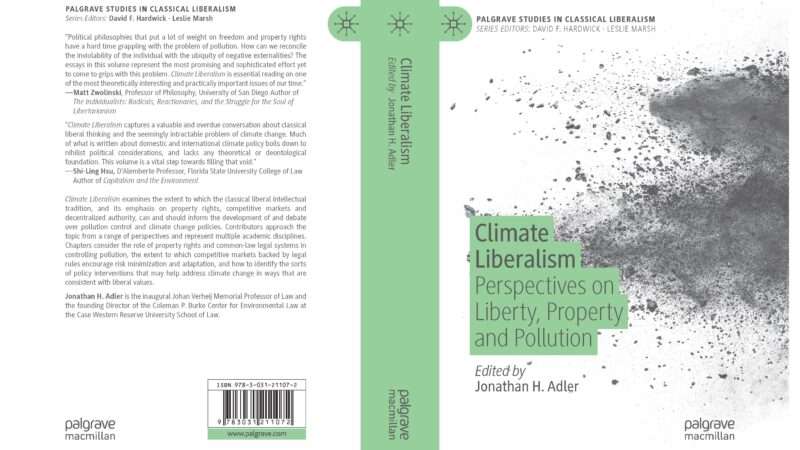
The economics journal Public Choice has published a nice review of my book, Climate Liberalism: Perspectives on Liberty, Property, and Pollution. The review is by Jordan Lofthouse.
The review begins:
Across the globe, many significant environmental challenges exist, but man-made climate change may be the most widespread and potentially dangerous. For decades, many scholars, policymakers, and activists have discussed ways to address air pollution, greenhouse gas emissions, and climate change. However, scholars in the classical-liberal tradition have understudied and underemphasized the issues surrounding climate change. Of course, many classical-liberal scholars have worked on this topic, but a conspicuous gap in the literature remains for such an enormous social issue . . .
The edited volume Climate Liberalism: Perspectives on Liberty, Property and Pollution helps to fill this gap. A variety of contributors discuss pollution- and climate-related issues from a classical-liberal perspective using multidisciplinary approaches, including philosophy, law, economics, and political science. The volume is a useful resource for understanding practical approaches for addressing climate change while also focusing on “preserving individual liberty and maintaining a free and dynamic economic marketplace”
And from later in the review:
Global problems like climate change do not have easy answers. Those answers are made more difficult when complicated with other considerations, including the classical-liberal values of limited government and decentralized authority. However, Climate Liberalism provides insightful and practical perspectives on how to understand and potentially tackle such a pressing social and ecological problem.
The full review is here.
Robert L. Bradley, Jr. of the Institute for Energy Research offers less favorable commentary on the book at Law & Liberty (which previously ran a favorable review). Bradley notes that climate science is uncertain, that warming can produce costs as well as benefits, and that government intervention to address climate change may be costly, clumsy, and a threat of its own. These are all points noted in the book, but Bradley breezes by that. Indeed, he never really engages with any of the actual arguments made by various chapters. Time permitting, I will respond in more detail.
The post Climate Liberalism in Public Choice appeared first on Reason.com.
from Latest https://ift.tt/t53QKiO
via IFTTT